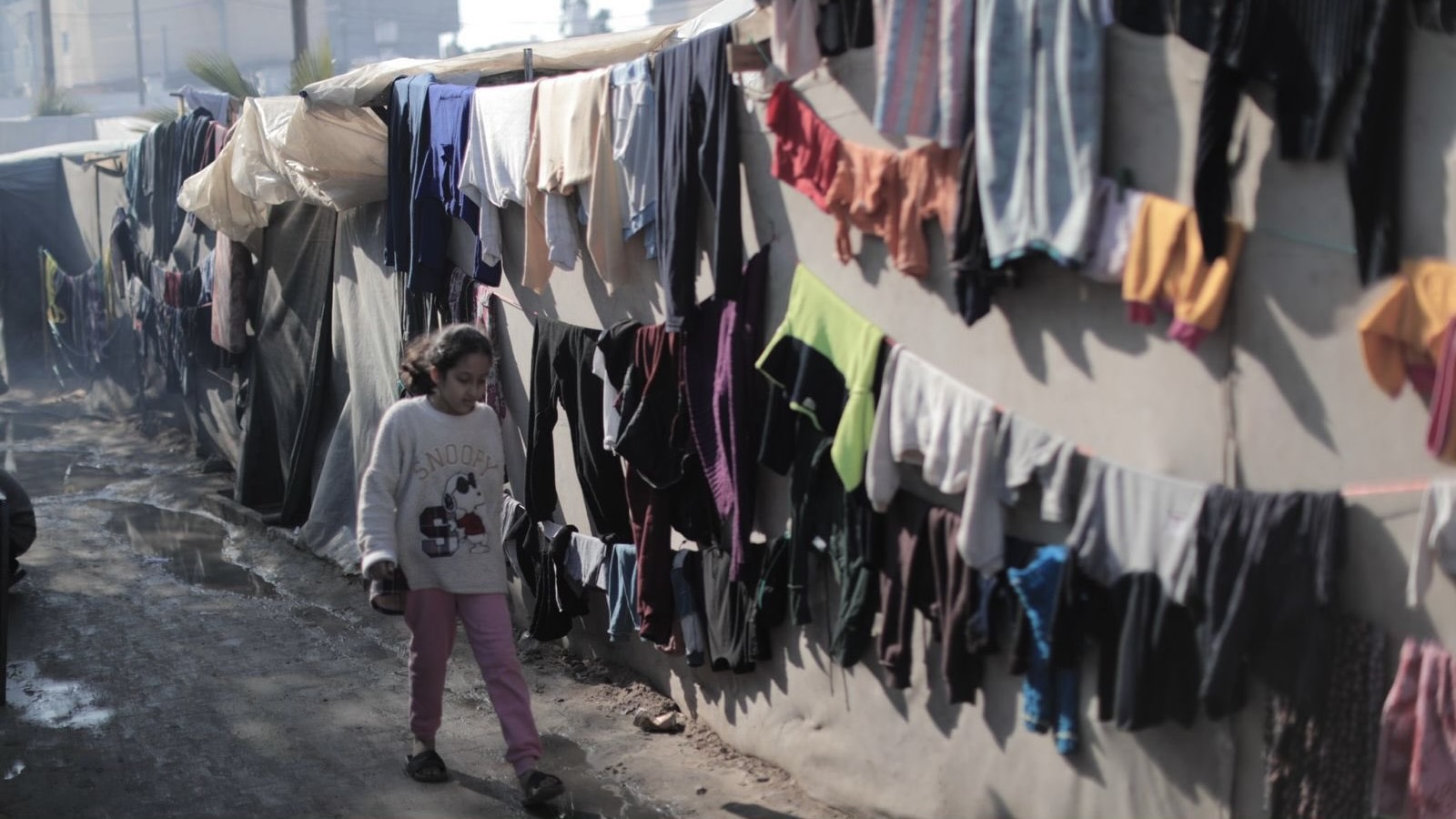Israel’s intensified bombardment in Southern Gaza, particularly in Khan Younis, continued unabated on the 109th day of its genocidal war in Gaza. This is despite repeated warnings and alarms raised by human rights groups, aid agencies, and the United Nations about the dire humanitarian situation in the area.
Over 60 Palestinians have been reported killed and hundreds injured as the Israeli military lays siege on the southern city, attacking and bombing hospitals such as the al-Amal and the Nasser hospitals, schools, universities, UN shelters, ambulance centers, the headquarters of the Palestinian Red Crescent Society (PRCS), and other locations.
Israeli soldiers have also reportedly shot and killed a number of Palestinian civilians who were trying to flee the attacks and the fighting and were waving white flags.
Tens of thousands had taken refuge in Khan Younis which had been previously declared a “safe zone” by Israel. Following the attacks on the city, they have once again been forced to flee and seek refuge elsewhere.
The intense attacks and bombardment at the two hospitals in Khan Younis saw aid groups such as Doctors Without Borders (MSF) and the International Federation of Red Cross and Red Crescent Societies express deep concern over the deliberate Israeli attacks on medical facilities. The MSF said that their staff present at the Nasser Hospital reported the “ground shaking” as a result of the Israeli bombardment.
Israeli government faces domestic pressure
Palestinian resistance fighters present in several parts of Gaza have also engaged Israeli soldiers in fierce gun fights, and reportedly killed 24 Israeli soldiers in the last 24 hours, one of the highest Israeli military death tolls in a single day since the beginning of the Israeli war on Gaza. 21 were killed in central Gaza and 3 others in Khan Younis. In total, more than 208 Israeli soldiers have been killed by Palestinian resistance fighters since the war began.
The high number of Israeli casualties is putting additional domestic pressure on the Israeli government to agree to a ceasefire. Additionally, the families of the Israeli hostages in Gaza have, over the last several weeks, been repeatedly calling on the government to agree to a truce and bring the hostages back home. Yesterday, a number of family members of the hostages also stormed the Israeli Knesset (parliament) and raised slogans demanding the hostages’ release, accusing the government of continuing the deadly and horrific war despite the danger it poses to the hostages.
The Israeli Knesset was suspended after families of hostages disrupted a committee meeting, demanding lawmakers do more to free their loved ones. Protesters also blocked entrances to the Knesset. pic.twitter.com/EnBlaTbiOX
— Democracy Now! (@democracynow) January 23, 2024
Qatari officials have told the media that they are in back and forth talks with Israeli authorities and leaders of Hamas regarding a possible ceasefire deal, although the intense Israeli bombardment is hampering swift progress in those talks. Israel has reportedly offered a two-month truce in the fighting in exchange for the freeing all of the Israeli hostages.
The overall death toll from the war has reached at least 25,490 Palestinians killed, along with at least 63,354 injured and more than 8,000 missing.
Starving, cold, and sick
As Israel continues to bomb Gaza causing death, destruction, and devastation across the territory, the humanitarian situation is rapidly deteriorating for the 1.9 million displaced Gazans. Due to the continued blockade of aid trucks, the majority of Gazans are suffering from an acute lack of food, medicines, and other essential supplies. Aid groups and international organizations have repeatedly warned that if enough aid is not allowed to get into Gaza, hundreds of thousands of civilians will be at risk of hunger, starvation, disease and death.
The World Food Program today once again warned that several parts of Gaza are at grave risk of famine, spokesperson Abeer Etefa added that “very little” food assistance has reached beyond the Southern part of Gaza and that WFP officials have been finding it difficult to access the northern parts of Gaza.
The United Nations Relief Works and Agency (UNRWA) today also noted that more than half a million people in Gaza, approximately 570,000 face “catastrophic hunger” due to the intense fighting, communication blackouts and access restrictions, and that very little aid has reached civilians in the Northern part of Gaza as a result.
UN experts and others have also accused Israel of using hunger and starvation as a weapon of war against the Palestinian civilians in Gaza, a war crime under international law.
Michael Fakhri, UN’s special rapporteur on the right to food, told Al Jazeera that, “we’ve never seen 2.2 million civilians made to go hungry within weeks. We have never seen this degree of hunger used as a weapon so quickly and so completely, ever. It doesn’t happen by chance. Starvation, wherever it happens, is always the result of political choices and this is the same case here.” He also noted that even before the current war was launched by Israel last year in October, Gaza was already reeling under a 16-year land, air and sea blockade by Israel, which meant that half of the population in Gaza was already food insecure, and 80% were dependent on international humanitarian aid for their daily survival.





